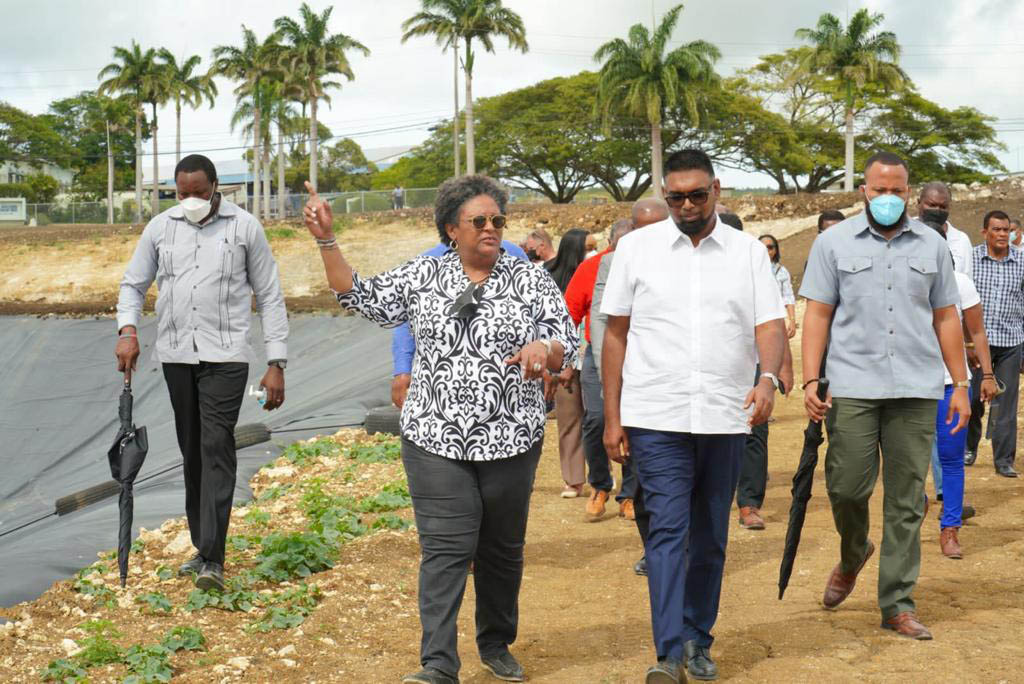Barbados Prime Minister Mia Mottley has gone on record as saying that the current ongoing creation of a regional food terminal on that island could go a long way towards realizing the key regional objective of reducing extra-regional food imports by 25% by 2025.
Last year, Barbados and Guyana were tagged with the key responsibility for the setting up of a regional food terminal which is expected to function as a fallback facility to help respond to food security emergencies in the region. Mottley told a recent gathering in the Barbados capital, Bridgetown, which included Dominican Prime Minister, Roosevelt Skerritt, that the region’s investment in such a facility will make possible the movement of food from countries that pursue large scale agriculture. Guyana has already been tagged as a key cog in the Caribbean’s food security wheel given the scale of agricultural production in the country.
Prime Minister Mottley, who, along with President Irfaan Ali, has emerged as the ‘glue’ that holds the region together as it battles against seemingly more serious challenges to its food security is reported to have told the gathering that the Caribbean has “perfect logistics” and that “we believe that the investment in the Guyana/Barbados food terminal will be critical. We have the plans and the numbers we are working on,” Mottley is quoted as saying. While the region as a whole is yet to receive an official update on the pace of progress towards the full establishment of the Food Security Terminal, Mottley is reported as saying recently that she will shortly be convening a meeting with financial institutions to discuss matters pertaining to the creation of the Terminal, among other key regional projects.
Some of the key issues yet to hammer out among regional governments include seeking to ensure affordable capital is available to state entities and private sector individuals to be able to expand production and undertake logistics. With several of the smaller islands in the region having already been cited as experiencing some level of food insecurity, the last thing that the region needs is to find itself under pressure to have the Food Terminal up and running. The Caribbean is unlikely to forget the various earlier food security ‘false starts’ that had been led mostly by Guyana, with each failing to fructify. This time, with the scale of threat being much more ominous, another failure could be costly for the region, particularly given the vulnerability of some of the smaller territories to climate change-related phenomenon that could seriously compromise their already limited food security capabilities.








